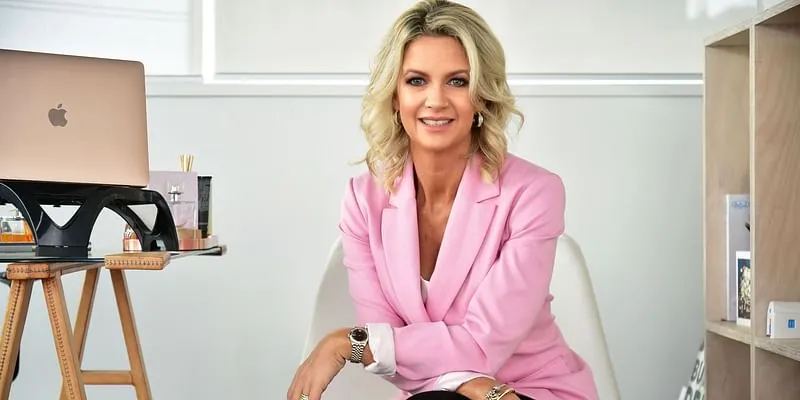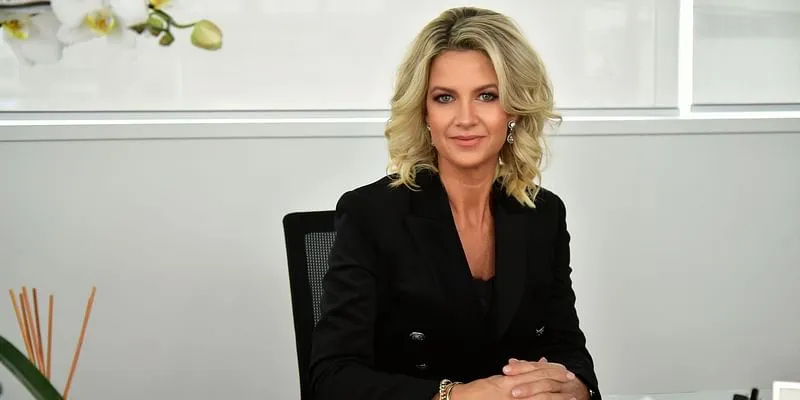How this woman entrepreneur realised the power of technology and data and started two data firms 20 years ago
In a conversation with HerStory, Auckland-based tech entrepreneur Carmen Vicelich talks about her journey of starting up.
When Carmen Vicelich decided to get into the world of technology 20 years ago, it wasn’t as big or cool a field as it is today.
“There was hardly any idea of what data, tech, and analytics is and how it can actually impact the world around us. But the world around us had slowly started transforming and changing,” says Carmen.
Today, Carmen is a top entrepreneur in New Zealand with over 20 years of experience developing valuation strategy in banking and using technology and data to create value. In record time, she has created two global, industry-leading businesses that do just that.

Carmen Vicelich
“I had viewed data differently. I started seeing that data could be used to reach the end consumer in the right way and in the right spirit,” explains Carmen.
One of the first companies she started was Data Insight, an analytics startup that uses data to provide personalised insights to understand consumer habits, preferences, and behaviours.
Her other startup Valocity is focussed on the property and valuation market. A sales and marketing executive in her early days, Carmen moved into the world of technology in the late 90s to learn and understand more about technology and data.
“I saw something new and different here, and wanting to do something. I decided to leave the company I was working at then to start up,” says Carmen.
In 2012, when starting up wasn’t as fashionable as it is today, she quit her 10-year-old job at CoreLock, a property information and analytics company, to start up.
“While others thought I was crazy, I never had a doubt of what I wanted to do,” adds Carmen.

Today, both her startups are multi-million-dollar, global industry-leading businesses that do just that.
Valocity has revolutionised the valuation process by digitally connecting lenders, valuers, brokers, and customers in one smart platform to streamline the valuation and property decisioning process.
The unique, cloud-based platform is used by many of the world’s largest lenders across New Zealand, Australia, India, and Asia.
Valocity has been recognised globally, including at the prestigious India FinTech Awards 2019 as Fintech Start Up of the Year; Singapore Top 10 Global Fintech 2018; and Microsoft ISV Partner of the Year 2020.
In parallel to Valocity, Carmen developed a second company called Data Insight, which helps Australasia’s largest business and government organisations leverage the power of data and advanced analytics, enabling data driven decision making to improve customer experience, efficiency, and profitability.
“What helped me build the scale that I have is by hiring the right team and people. And that happens only by trial and error. You realise only while hiring that not everyone perfect is actually perfect for you,” says Carmen.
Apart from founding two data and technology businesses, Carmen mentors several students and business founders, and is a regular global speaker sharing her story of innovation, serves on several boards including UNICEF (United Nations International Children’s Emergency Fund), and is a proud mother of four children.
She says the important thing is to follow your passion. “The ride is tough for any entrepreneur and you do face biases as a woman entrepreneur, but it is to realise that biases happen because people are unaware. So, the idea is to keep going and understanding what the customer needs and business needs are, and focus on them.”
Edited by Megha Reddy




![[100 Emerging Women Leaders] Meet this Silicon Valley techie, who has built core systems at Facebook, Paypal, and Lambda, and now runs her own startup](https://images.yourstory.com/cs/4/a9efa9c02dd911e9adc52d913c55075e/NamrataGanatra-01-1636890423922.png?fm=png&auto=format&h=100&w=100&crop=entropy&fit=crop)




